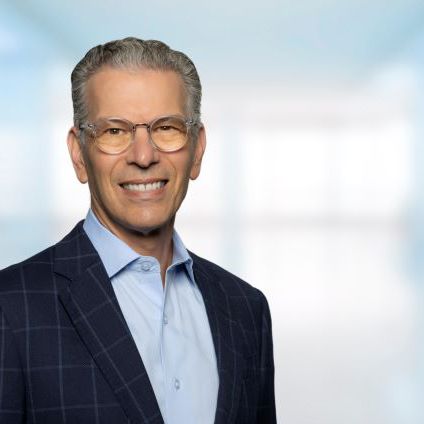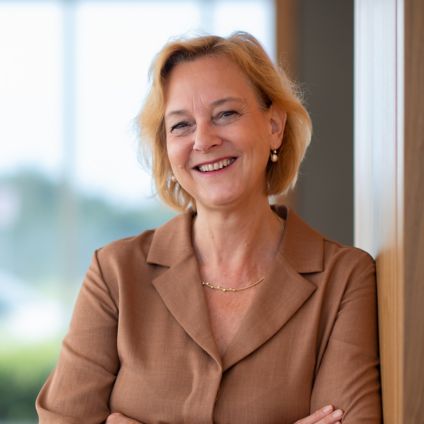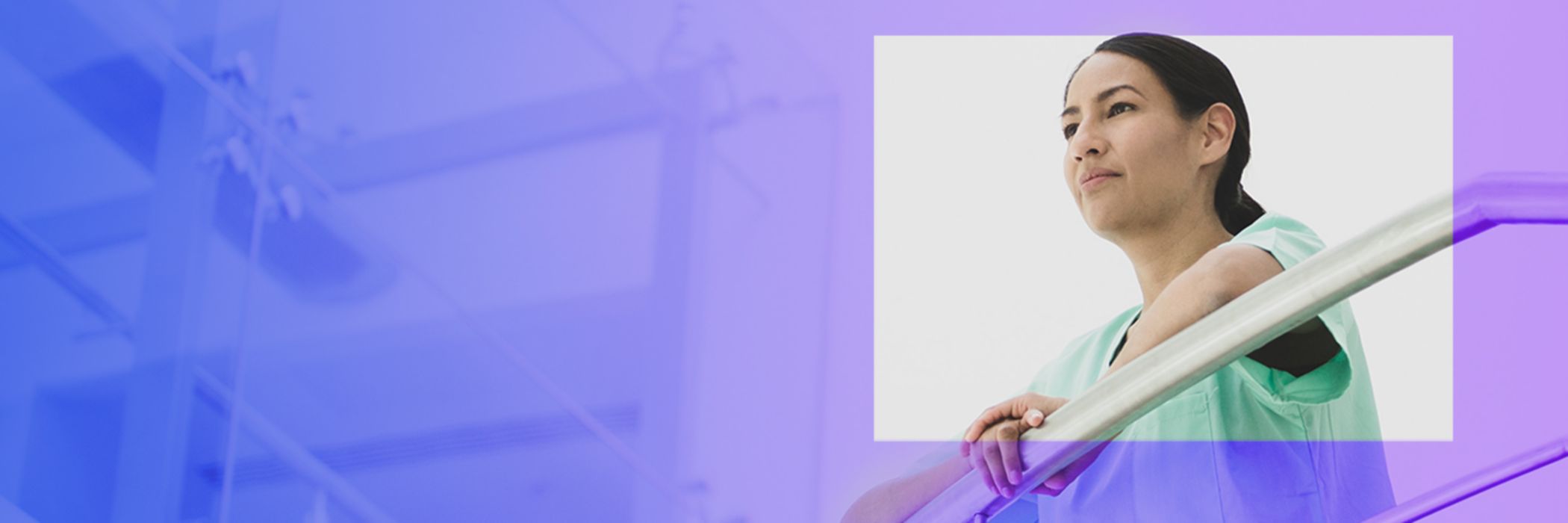Preview
As the world of healthcare is moving to artificial intelligence (AI)-based and digital delivery models at high speed, there is an increasing need for the implementation of electronic medical record (EMR) systems that will facilitate these new care delivery models. In this article, Anna van Poucke, Global Head of Healthcare for KPMG International, interviews Dr. David Feinberg, Chairman, Oracle Health, on the evolution of electronic health records (EHRs), supporting integrated care delivery, the need for cloud-based services and interoperability, leveraging data and technology system investments to improve the speed and accessibility of care delivery, and increased workforce productivity.
In 2021, the acquisition of Cerner by Oracle was touted as creating “the capacity to transform healthcare delivery by providing medical professionals with better information — enabling them to make better treatment decisions resulting in better patient outcomes.”1
I wanted to hear from David Feinberg, Chairman of Oracle Health, about how that vision is becoming a reality. Our discussion spanned the evolution of EHRs, interoperability challenges in integrated care delivery, and the benefits of open product development. We also touched upon the role that AI can play in aiding clinical decision making, how data and technology system investments can be used to help improve workforce productivity and service accessibility, and the importance of partnerships in transforming healthcare.

Dr. David Feinberg
Chairman
Oracle Health
Anna van Poucke:
What are your thoughts on the evolution of EHRs?
David Feinberg:
Healthcare is people taking care of people. The first thing that we're doing at Oracle Health to modernize the electronic health record is to free the caregiver from the computer. Let me give you an example of a tool we are scaling up right now. Imagine a patient with diabetes who is recovering from pneumonia. She visits the doctor with out-of-control high blood pressure. The doctor gets a summary on their phone about the patient’s medical history. The EHR tool has also pulled population health data to show that she has food insecurity. Following an examination, the doctor concludes that the pneumonia is getting better but that the patient needs to increase her dose of metformin for better diabetes control. The doctor also decides to enroll the patient in a food prescription program. The doctor and patient agree to schedule a three-month checkup.
With our technology, our expectation is that the doctor will be able to do that entire visit with the computer to their back. All the information, the risk adjustment factor score, the note to the insurance company, the change in the order of the metformin to increase the dose, the enrolment in the food prescription program, the note to the patient, the note to the referring physician and the progress note could be done by technology, making the doctor’s job easier. We aren’t trying to take it from 30 clicks to 20 clicks, we are looking to take it to zero clicks, so the caregiver can focus on care and building a relationship with the patient.
What is exciting to me since Cerner became part of Oracle is that we are no longer an EHR company. We are an open and connected, enabled platform that's actually EHR-agnostic. That brings together so many other important disparate data sets in healthcare that need to be put into a platform and includes clinical trials, claims processing, enterprise resource planning, supply chain and human capital management. Since we’re part of Oracle, we are all about building a platform instead of point solutions.

Anna van Poucke:
Around the world, there has been a substantial increase in the establishment of integrated care networks. How is your EHR system and the technology stack around it addressing the movement towards these integrated multi-setting care networks?
David Feinberg:
We're really excited about the progress we've made in this area. At Oracle Health, we created a product called Seamless Exchange, where a customer designates a group of facilities, and they are loaded into the system as trusted sources. When a new patient arrives at a facility and they’ve already been treated at different places in the community, you can look up this patient on health information exchanges.
What we've done is to take all of that information from all of those places and make it longitudinal. And then we de-duplicate any repeated laboratory, radiology, progress and other reports in the patients’ records. We tee it up to you as the clinician right when you need it. That's how we're solving this problem.
The other thing that it does with our health data information platform is to pull in non-clinical information. Sometimes your zip code is more important than your genetic code, right? And so, what is the micro location of the block that you're living in? Do you live near a forest where ticks spread Lyme Disease? Do you live in a food desert?
Anna van Poucke:
Given where EHRs have come from and the innovation and acceleration of technology in other systems, should EHRs evolve from systems of record into systems of intelligence that assist with clinical decision making?
David Feinberg:
Electronic health records can already assist with pre-set clinical pathways. But today, with the ability to use AI, we plan to take that a step further. In certain circumstances, we are able to predict with a high level of certainty what is going to happen to a patient before it happens. For example, is a particular medication going to cause side effects? Of course, we have to be explicit on what data we train the model on, and consequently when we should and shouldn’t use it. We need to be very careful in how we use the data.

Anna van Poucke:
Globally, interoperability is a big problem in healthcare. At the 2023 Oracle Health Conference, an announcement was made that Oracle was going to be open and connected — even for health systems or providers who have made investments into other EHR systems. What guidance are you giving your clients about their strategies for working with Oracle in the future, specifically when they already have a different EHR?
David Feinberg:
Our strategy is to build everything in a modular way that's EHR-agnostic. What we are saying to these organizations is, “join us in the journey wherever you are, and we'll help you with whatever system you have.” In most countries, we're seeing more and more legislation going toward interoperability. The regulation is going the right way.
We also believe in a multi-cloud world. A very large partnership announced with Microsoft last year helps enable Oracle database services running on Oracle Cloud Infrastructure (OCI) to be deployed in Microsoft Azure. We want data to be able to move back and forth. There’s a lot of opportunity for savings — for pharma, for providers, for payers, for governments. As they move to the cloud, they also have access to the best cybersecurity and the best technology.
Anna van Poucke:
In an industry with slim margins, how do you help your clients to reconcile the costs of investing in new data and technology systems?
David Feinberg:
I don't think it's a zero-sum game. We can use our technology to help providers optimize staffing, decrease turnover and improve efficiency, such as getting nurses to do more nursing and less clerical work. Same with clinicians. Improving staff performance generally could really help decrease costs that can pay for the new EHR system.
Oracle is a leader at enterprise resource planning and supply chain, but even pre-Oracle, our system was able to do predictions about demand load and staffing predictions and that sort of thing. That business intelligence can free up operating rooms to drive more volume. Or help you predict that reaching out to a patient at home is going to avoid an unnecessary emergency room visit. The exciting thing is pulling it all together.
When deploying EMRs, you have to look at the whole picture. This is about change management, business transformation, and thinking of it in that way.

Anna van Poucke:
Another message heard at the Oracle Health Conference was that your organization would be making all application programming interfaces (APIs) in healthcare public. Competitor companies were called on to do the same. Can you elaborate more on this bold call to action?
David Feinberg:
We are working to increase our public APIs by over 300 percent. Those are going to be the same APIs that our team works on as we build products. We want the industry to build with us, to create and innovate with us. We think that that is the right strategy.
When people from the world of tech go to healthcare organizations, they all tell you they've got this new thing that's going to make care better and it's going to cost less money. They don't always deliver on that last part. We believe that an open and connected system that allows innovation with those open APIs will create a health platform that is way less expensive because it's integrated and allows you to make intelligent decisions.
Anna van Poucke:
What do you think healthcare leaders need in order to reap the benefits from what Oracle Health is offering?
David Feinberg:
Leadership in health care is about creating a shared vision. Doctors, nurses, occupational therapists and social workers really just want to help people. They decide to go into these roles for very altruistic reasons, so leaders should just get stuff out of their way and let them do this.
You don’t have to be a technological expert to be a leader in healthcare. Leaders need passion, humility, and a drive to make the community healthier. Those are the most important things in an individual healthcare leader. Leaders can leave the tech to us and they can do the important thing, which is caring for people.
Anna van Poucke:
Your organization has ambitious plans to transform healthcare. How will you achieve this? Are you going to work alone as Oracle Health?
David Feinberg:
We think that this is way too big of a lift to do this alone. It's our moral imperative to get this right, and the only way we can do that is with partners. These are really cultural changes for a lot of organizations. This is about rethinking the role of how that organization engages, both with its workforce and those that they care for, in the broadest sense.
We're a tech company. We need partners that can take our technology, engage with health systems, to support change management, business transformation, and clinical improvement so that everyone is getting care that's accessible, affordable, understandable, culturally sensitive, safe, and right. We're excited about working with KPMG firms to help us integrate this into healthcare systems around the world.
Anna van Poucke:
KPMG professionals are also excited to be working with Oracle Health. We need to work together not only to support tech transformation, but to help realize much-needed business, clinical and cultural transformation in the healthcare sector.
This has been a very interesting discussion. David, I think you’ve done an excellent job of giving us and our Healthcare Foresight readers great insight on how Oracle Health is helping to transform healthcare delivery now and into the future.
KPMG and Oracle Health
Real change can only be effectively realized with collaboration. For this reason, KPMG has expanded its long-standing relationship with Oracle to include a focus on Oracle Health. This expansion, built on an existing 30-year relationship, is focused on combining KPMG professionals' industry insight and experience with Oracle Health’s world-leading suite of technology, giving KPMG firm clients and the wider healthcare sector a truly connected service offering — KPMG Powered Enterprise enabled by Oracle Health.
Author
Connect with us
- Find office locations kpmg.findOfficeLocations
- kpmg.emailUs
- Social media @ KPMG kpmg.socialMedia
How KPMG can help
Some or all of the services described herein may not be permissible for KPMG audit clients and their affiliates or related entities.
The views and opinions of external contributors expressed herein are those of the interviewees and do not necessarily represent the views and opinions of KPMG International Limited or any KPMG member firm.
1 Oracle. (20 December 2021). Oracle Buys Cerner, [Press release]. https://www.oracle.com/news/announcement/oracle-buys-cerner-2021-12-20/




